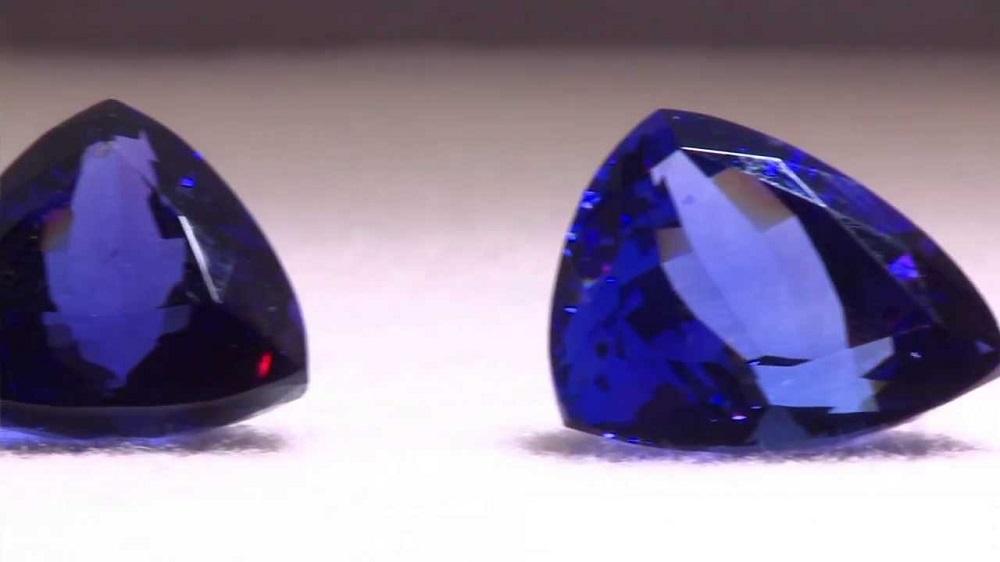- Tanzanite is so rare that it is only found in one place in the entire world, Tanzania and hence its name, tanzanite
- For years, Tanzania has complained bitterly over how India has been benefitting from the sale of tanzanite, a rare gem
- The mineral’s value chain extends far beyond its borders across the seas in India’s city of Jaipur, the capital of Rajasthan state.
After decades of smuggling allegations, conspiracies of misappropriation and outright accusations of value theft, Tanzania and India have finally come to common ground on mineral research.
For a long time, Tanzania has lamented how India has been benefitting from the sale of tanzanite, a rare gem. In fact, tanzanite is so rare that it is only found in one place in the entire world, Tanzania and hence its name, tanzanite.
However, Tanzania has, for years now, been exporting raw tanzanite while other countries such as neighbouring Kenya and far flung India, enjoy the lion’s share of the resulting income from the rare gem. How can it be you ask? Well, through value addition in cutting and polishing of the stone.
You see, tanzanite may be solely mined in Tanzania but its value chain extends far beyond its borders across the seas all the way to India’s city of Jaipur, the capital of Rajasthan state. Jaipur, is well known globally for gemstones, and it is the world’s capital of cutting and polishing precious gems.
Tanzanite is one of the gemstones that has made Jaipur famous and is the stone behind the city’s multimillion-dollar empire that constitutes a well-established tanzanite processing industry that creates thousands of jobs.
Read: Value Addition of mineral resources: Lessons from Tanzania, Zambia and DRC
Export of cut and polished tanzanite from India’s Jaipur is reported to earn in excess of $82 million annually. That figure is disturbingly very close to the $100 million that the stone’s country of origin, Tanzania, earns from the export of raw tanzanite annually.
Tanzanite is a coveted gem and its trade is valued at $500 million per year. To increase its revenue, Tanzania has now banned the export of raw tanzanite and introduced a Certificate of Origin to be embedded on all tanzanite.
The move is, however, causing ripples and waves to all other nations that depended on the raw tanzanite from mines deep in the East African country. So what to do? India (not necessarily for this reason) has now entered into a pact to build Tanzania’s capacity to process tanzanite domestically, a seemingly counter-productive move for Jaipur, but then again, the city has many a glimmering gem to keep it afloat and shiny.
So the tug-of-war seems to be in the past now, the two countries have inked a research pact on what they are both referring to as ‘strategic minerals’. The pact was signed by Tanzania’s Permanent Secretary in the Ministry of Minerals, Mr Kheri Mahimbali, and the Indian High Commissioner to Tanzania Binaya Pradhan.
As part of the pact, the two countries have agreed to collaborate in geophysics research using high-resolution surveys and working in collaboration with the Institute of Geological Survey of Tanzania (GST).
As pointed out, the two countries will also cooperate in value addition to training Tanzanian youth, who will learn the cutting and polishing skills of various gemstones, the trade that has built and sustains Jaipur, the 10th most populous city in India subcontinent.
For sustainability and longevity, this pact will also include developing the country’s Tanzania Gemmological Centre (TGC) which is responsible for value addition training.
This development is in line with Tanzania’s long-term plans to develop value addition of minerals in the country and reduce the export of raw minerals altogether.
Read: Tanzanite, the Jewel of the Kilimanjaro
Other than value addition in cutting and polishing of gems, the minerals involved in the Tanzania-India deal also include energy minerals. Energy minerals are the source of clean fuel for the future and as such, they are critical and strategic to economic development as well as national security.
These minerals include nickel, cobalt, copper and graphite among others, each of which is also vital to the development of the country’s manufacturing and agricultural supply chains. These energy minerals are the basis to fueling modern technologies across all industries including the telecommunication and transportation industries.
Short of specifying the commencement of the pact, the countries agreed that the plans should be put to action with immediate effect. The two countries have ordered their responsible ministries and agencies to iron out the fine details and launch the partnership.
Tanzania gold smuggled to India?
Elsewhere, a total of 53 kilogrammes of gold said to be from Tanzania have been nabbed in India, the Tanzania Minerals Commission (TMC), revealed recently.
The TMC says the gold is estimated to value a hefty $3.47 million and was seized by customs officials in India at the Mumbai International Airport in a single burst.
The gold was apparently been transported by four Indian nationals, who are alleged to have been travelling from Tanzania. Authorities in India say the alleged Indian smugglers carried the gold in waist belts that had been re-tailored to have multiple pockets and the gold split into 1kg bars.
“The belts were allegedly handed over to the passengers by a Sudanese national at Doha Airport in Qatar during transit,” the police report said.
According to the TMC this is not a one-time stint, rather, it is the work of a long-time-running smuggling ring. However, despite handling the investigation, TMC Director for Mineral Audit and Trade, Mr Venance Kasiki maintains that the source of the gold remains unknown.
If tried under Tanzanian laws, the alleged smugglers will be required to pay sums three times the value of the seized consignment and serve jail time.
The investigation is currently underway and is been led by TMC but also involves the Tanzania Airports Authority (TAA), Tanzania Revenue Authority (TRA), the Tanzania Intelligence and Security Services, the police force and the immigration department.

